An Audiologist Sounds Off On Hearing Loss


We had the opportunity to sit down with Dr. Melissa Wikoff to discuess the field of audiology...
How would you define audiology?
Audiology is formally defined as a branch of science and medicine concerned with the sense of hearing. As an audiologist, it’s my job to help those with hearing loss, tinnitus (ringing-in-the-ears), and balance disorders.
What inspired your journey into audiology?
I grew up watching my grandfather struggle with hearing loss. I remember sitting on my grandpa’s, reaching up to whisper a secret in his ear and hearing a squeal from his hearing aid. I knew there had to be a better solution out there! I have always been interested in science. I had open heart surgery at a young age and my father is a Veterinarian. I grew up watching him perform surgery and take care of others. I have a citation in life sciences from the College Park Scholars program at the University of Maryland, which allowed me to explore medicine and the health sciences. I expressed interest in audiology to my professors, Dr. Chris Zalewski, who invited me to shadow him for a day at the National Institutes of Health. I fell in love with the field of audiology that day and there was no turning back. I received a world class graduate education with Washington University in St. Louis. The Program in Audiology and Communication Sciences allowed me to explore all kinds of areas in my field from lab science, research, pediatrics and private practice. I fell in love with the idea of a private practice and dreamed to own one. It's exciting to watch Peachtree Hearing grow from that kind of base.
What is one thing/fact you wish everyone knew about hearing and hearing loss?
I wish that everyone understood the importance of early intervention! It is so important to protect your ears from a young age (helllllo, PuroSound!). Hearing loss can result in tinnitus, social isolation, cognitive decline and depression. Instead of focusing on those negatives, it’s important to highlight what we can do to protect ourselves! Once you begin to lose hearing from excess noise or age, it can continue to decline until you take action. Much like you exercise your muscles so that they do not atrophy, you want to stimulate and use your auditory nerve. This is often done by using amplification once a hearing loss is identified.
What are some of the best ways we can protect ourselves from noise-induced hearing loss?
The best ways to protect ourselves from noise-induced hearing loss are by using hearing protection and limiting the output of noise around us. As the mom of a toddler, PuroSound are my favorite headphones. My daughter can listen to music and movies anywhere, and I can feel confident that she is safe and protecting those precious ears for her future. My husband and I also use them since we are audiophiles and they are studio-grade sound quality and we don’t want to miss out on fidelity for safety. We make custom hearing protection for different activities. It’s the best way to ensure proper noise safety. We can make custom plugs for motorcycles, filtered plugs for concerts, and just about any noisy activity you can imagine! I applaud anyone coming in to my clinic for hearing protection. By protecting your ears today, you are investing in your future self.
In your opinion, what is the future of the field?
The future of audiology is bright! Think of how your cell phone has changed in the last three years. Imagine that technology inside of hearing aids and hearing protection! We are also more aware about noise and a more health-conscious society than ever before. I teach yoga as part of my fall prevention and balance program. It is amazing how our ears play such a huge role in our body. It’s amazing how mindful yoga studios have become of playing the right kind of music at a safe and effective volume to invoke a feeling. Our ears connect us to the sound we love- from hearing our kids say, “I love you” to hearing our favorite song on our ipods. Audiologist have a duty to educate the public about the importance of hearing protection, how to cope with hearing loss (our own or those we love experiencing hearing loss), and how best to treat and live with a hearing loss.
How can people contact you to schedule an appointment or consultation?
Email: Mwikoff@peachtreehearing.com
Website: www.peachtreehearing.com
Phone: (470) 485-4327
Facebook: http://www.facebook.com/peachtreehearing

